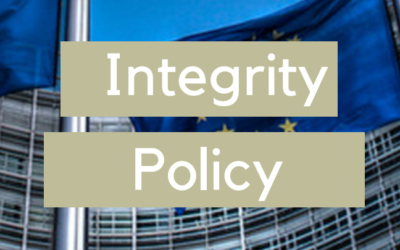The origin of the word “lobby” dates back to the late medieval Latin term laubia, meaning loggia or porch. Starting in the 19th century, it became associated with the image of the antechamber adjacent to the halls of power. This meaning is derived from the “lobby of Westminster,” the area in the British Parliament where members of Parliament would typically meet the public before and after parliamentary sessions.
The Green Paper on Transparency, adopted by the European Commission on May 3, 2006, defines lobbying as “the activity carried out with the aim of influencing the policymaking and decision-making process of European institutions” and states that it “represents a legitimate component of democratic systems as it can help draw the attention of European institutions to important issues.”
But how can lobbies—representation organizations—serve as an opportunity for democratic systems, particularly the European one? And how does the participation of interest groups in the development of European policies manifest itself?
First and foremost, lobbying is an activity that actively contributes to improving citizen participation and representation. On one hand, representation associations act as a channel of access to institutions, allowing civil society to engage in dialogue with the key players in the European decision-making process. The goal is to bring issues to the attention of policymakers, exchange opinions, and thus protect certain interests in an institutional context that has changed. In this context, decision-making dynamics are no longer exclusively determined by national and local governments but have increasingly reached a European dimension. On the other hand, lobbies contribute, through a purely consultative approach, by providing policymakers with expertise and technical information on specific topics, which is useful during the agenda-setting process. This ensures that institutions have enough elements to assess the choices to be made.
In other words, the representation of interests acts as a social and economic infrastructure that brings civil society actors closer to public decision-makers, ensuring that EU policies reflect the needs of citizens.
Regarding the second question, the EU’s multilevel system offers various access channels. Primarily, given its monopoly on legislative initiative, the European Commission is the main access channel and a strategic pressure point for European lobbies. Specifically, the Directorate-Generals, each responsible for specific policy areas, serve as interlocutors for economic actors and social partners.
Given the expansion of legislative powers within the European Parliament, and in particular, the establishment of the co-decision procedure with the Lisbon Treaty (where the Parliament examines and adopts the European Commission’s proposals jointly with the Council), this institution has increasingly become significant in the negotiation process. As a result, the European Parliament has become the second access channel for lobbies to EU institutions, particularly through the hearings of interest groups by parliamentary committees and lobbying of Members of Parliament.
On the other hand, the Council of the European Union, which represents the intergovernmental dimension, is less subject to lobbying pressures. Since the Council is composed of representatives from national governments, interest groups tend to address that level directly. Similarly, due to its genuinely intergovernmental nature, the European Council, which does not negotiate or adopt legislative acts, is considered the least accessible channel for lobbying activities.
When engaging in actions to influence the decision-making process in favor of the interests they represent, lobbies must always prioritize the safeguarding of their integrity and that of the public decision-maker, who is the ultimate guardian of the common good. For this reason, it is essential to regulate lobbying activities, as the European Union has done by establishing the Transparency Register.
At Meseuro, to honor the foundational values that guide us in our daily work, we have implemented an Integrity Policy that is adhered to by our team, collaborators, suppliers, and consultants who work with our company.



